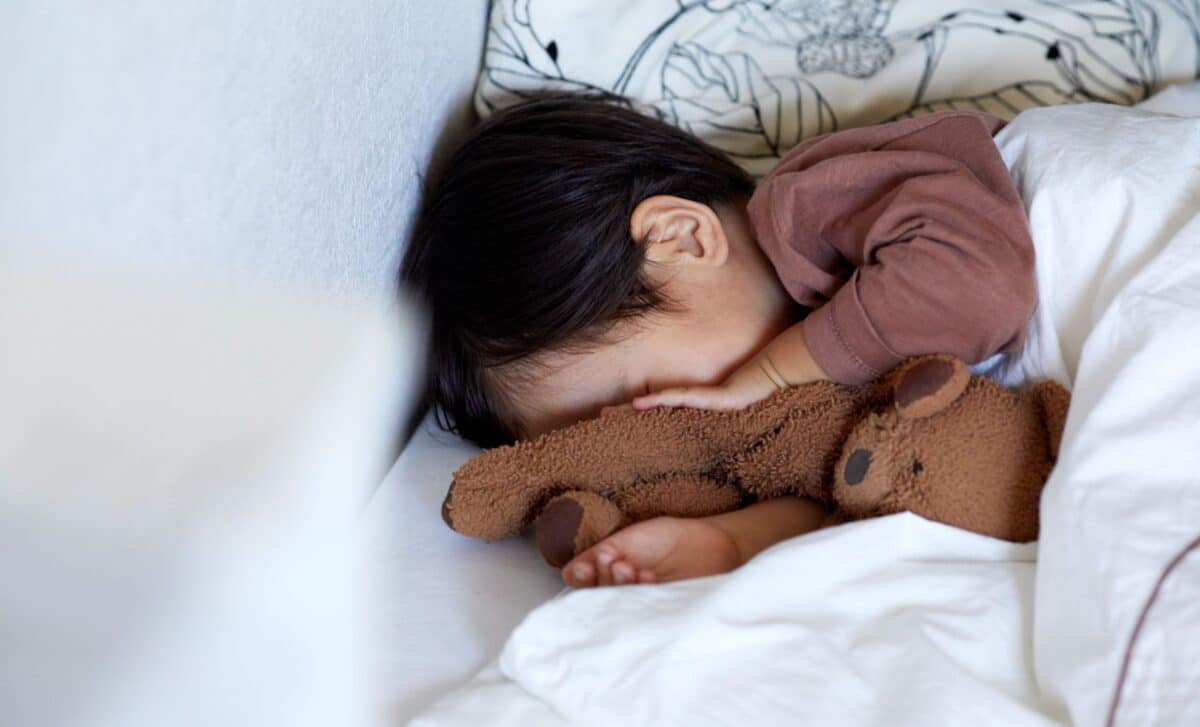“He cried without waking up,”, this phrase, which may seem trivial at first, actually raises an intriguing and even worrying phenomenon for many parents: unconscious nighttime crying in children.
This behavior surprised many parents, as it seems quite mysterious. These episodes can last for several minutes, often accompanied by movements or agitation, without the child opening their eyes or showing any signs of awareness. The next morning, the child has no memory of these episodes.
Nightmares, night terrors, or emotional overflow?
Before panicking or jumping to conclusions, it’s important to understand what’s actually happening. This type of behavior often falls under what specialists call non-REM sleep disorders, including night terrors. Unlike nightmares (which occur during REM sleep), these episodes happen during a deeper phase of sleep.
In other words, the child is truly asleep, even if they appear very disturbed. What is difficult for parents is the inability to act. The natural reflex is to want to comfort, talk to, or calm the child. But during a night terror, the child doesn’t perceive these gestures. Some experts recommend avoiding waking the child, as it may worsen the episode or cause confusion.
She Ate Almonds Every Day… And After 30 Days, Her Body Had Completely Transformed
When daytime emotions overflow at night
Beyond sleep disorders themselves, these episodes can reflect an emotional overload. Children, especially younger ones, sometimes struggle to process the emotions of the day: frustrations, family tensions, routine changes, school anxiety… All of this can manifest as unconscious crying during the night.
Sleep becomes a kind of silent valve, a space where repressed emotions try to express themselves. The brain, still developing, sorts, stores, and digests what it has experienced. And sometimes, this is expressed through a child crying in their sleep.
What can parents do?
When faced with these manifestations, there’s no magic solution, but there are some tips that can help better cope with these restless nights:
- Create a calming bedtime ritual: gentle reading, reassuring nightlights, quiet shared moments.
- Avoid screens before sleep, as they overstimulate the brain.
- Observe possible triggers: certain stressful events, even trivial for us, can be overwhelming for the child.
- Don’t feel guilty: this isn’t an “educational failure.” These episodes are very common and often temporary.
- Consult a specialist if the episodes become violent or too frequent.
An invitation to listen differently
These silent cries are also an invitation to listen differently. Not just to what the child says, but to what their body and subconscious express. Sometimes, children speak the most… when they aren’t speaking. And it’s up to us, as adults, to decode these signs with compassion and patience.
In the end, it’s less about finding an immediate solution, and more about supporting the emotional process. Growing up also means learning to manage what overflows — and sometimes, this happens through longer nights for parents. But perhaps, it’s also about a better understanding of what’s going on behind closed doors, in the bed of a child who cries… without waking up.







